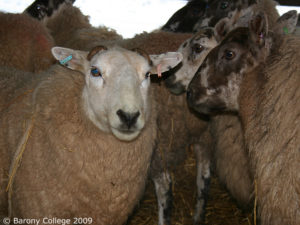Is OPA An Issue On Your Farm?
22 December 2016Ovine Pulmonary Adenocarcinoma (OPA aka Jaagsiekte) is a significant cause illness and death on many sheep farms. The number of infected farms in the UK remains uncertain, but post-mortem data on cull ewes shows it could be present on many farms without the farmer’s knowledge.
Signs of infection and what to do:
- White fluid pouring from the mouth and nose are a clear sign of OPA infection, but lack of these fluids does not mean they are not infected
- This fluid is highly infectious; avoid any close contact with between infected and non-infected sheep, water/feed troughs could be a source as well as nose-to-nose contact
- Wasting – you may see loss of body condition before any other signs develop
- Listen – croaky, difficult breathing, can mean OPA infection
- In severe cases, lambs can be infected from their mothers through her colostrum and milk – if you identify an OPA infected mother, we recommend you do not retain her offspring.
- Lambs as young as 6 months old have been diagnosed with OPA, but it is more common in older sheep. Diagnoses in ewes peak at 4 years old but in rams the peak is at 2 years old.
- Keep those that have been exposed to the disease apart from any naive animals.
- Cull any diagnosed animals as soon as possible
- Sudden unexplained deaths may be due to OPA
- Ultrasound scanning can help diagnose and control OPA. Moredun is currently involved in studies to see if whole flock scanning can be used reduce the risk of disease in infected flocks.
Post-mortems of any unknown deaths are valuable to understand disease status on your farm. These are well subsidised by the Scottish Government.
OPA and Pneumonia
50% of the adult sheep that were diagnosed as having died of pneumonia by SAC Consulting Veterinary Services in recent years had OPA as an underlying problem. These sheep were often in good body condition with no evidence of wasting.
Marion McMillan, Marion.McMillan@sac.co.uk
Sign up to the FAS newsletter
Receive updates on news, events and publications from Scotland’s Farm Advisory Service

